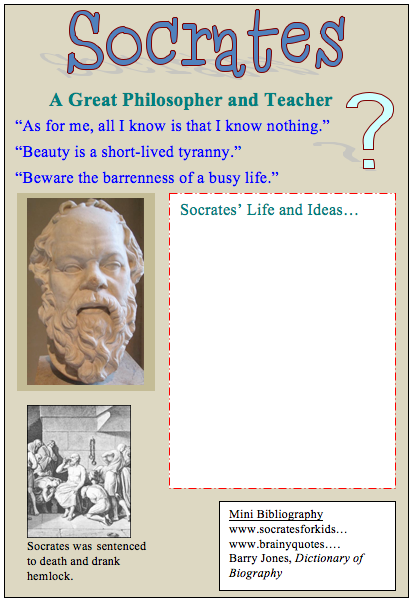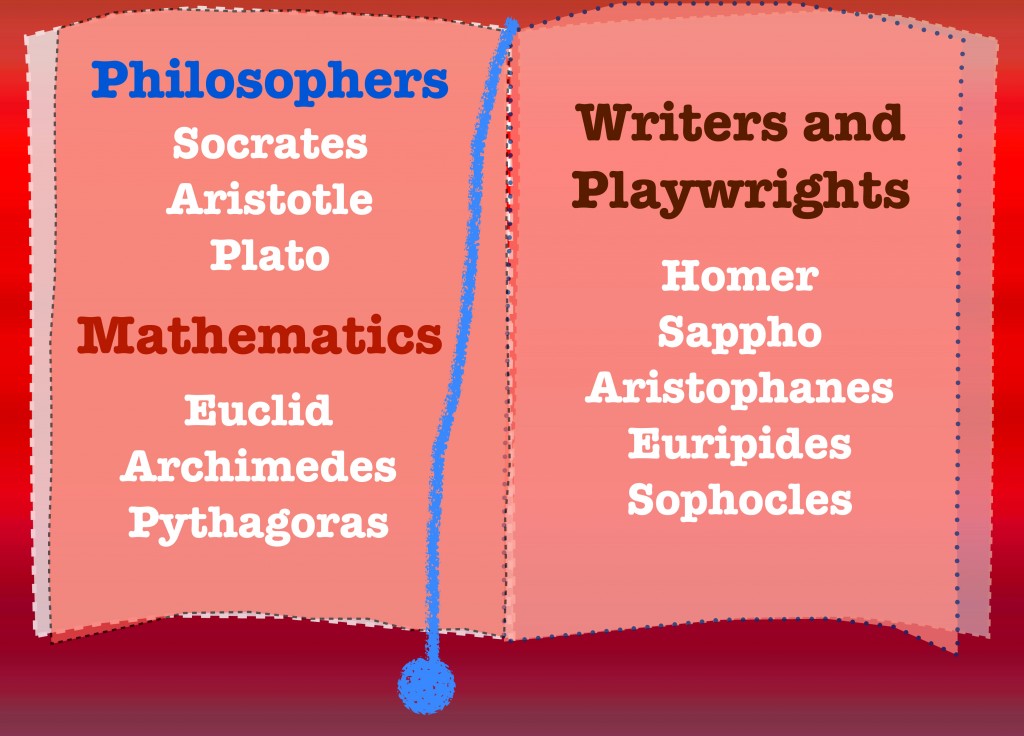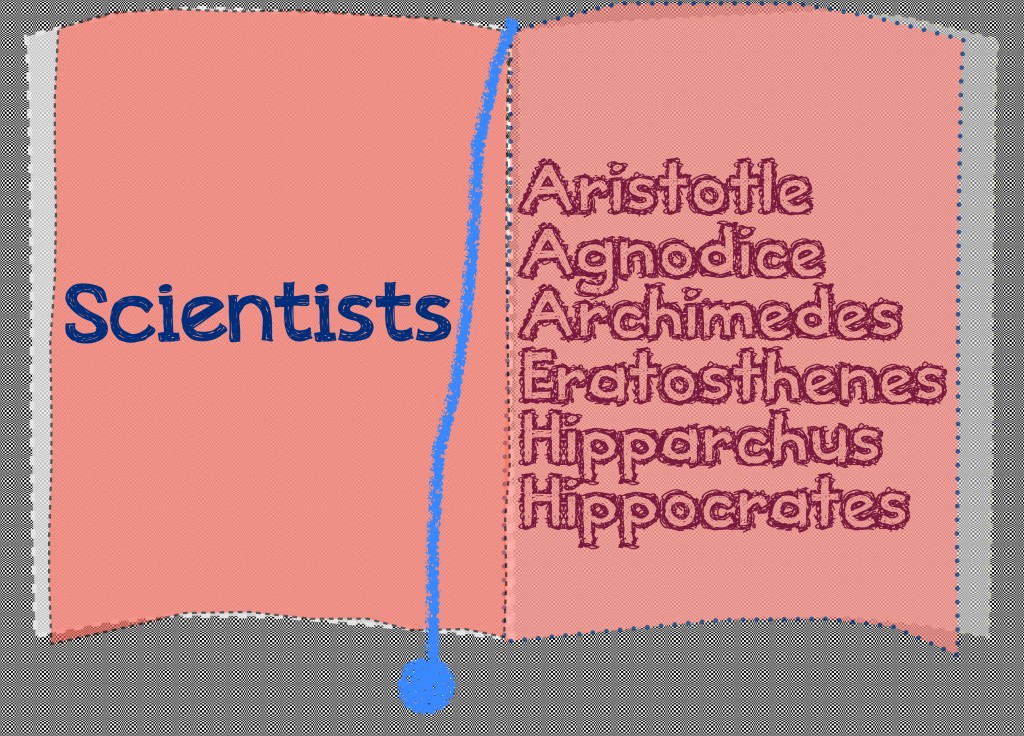
Welcome back from holidays, 7C!
As you already know, many people from ancient Greece were remarkably influential, impressively inventive and downright clever. For instance, there was Euclid, who figured out the rules of geometry and whose textbooks were used in schools until the 19th century. There was Homer, who is credited with writing down the legends of Odysseus and the Trojan War and whose stories have intrigued and inspired people ever since. There was the poet Sappho, whose work only survives in fragments – yet those fragments are so surpassingly beautiful, so intense and so memorable, that modern people still read her work with wonder. I could go on, but I want you to discover an ancient Greek thinker for yourselves. Here is your task:
Choose ONE of the great Greek thinkers listed below. Try to read two or three websites and one or two books about that person. The books could include an encyclopedia in the library or a dictionary or encyclopedia of biography. Once you have found your information, design an attractive and eye-catching page about your famous Greek. Your page should include:
♦a summary of the person’s achievements
♦what you find interesting or admirable about him/her
♦quotations attributed to the person
♦diagrams representing inventions or mathematical principles, etc.
♦an attractive heading
♦a mini bibliography
♦symbols representing the person’s ideas or achievements (for instance, I have chosen a question mark for Socrates, because he was famous for asking questions)
Recommended Websites
Summary and other links: http://www.woodlands-junior.kent.sch.uk/Homework/greece/famous.htm
Homer: http://greece.mrdonn.org/odyssey.html
Homer again: http://www.bbc.co.uk/history/historic_figures/homer.shtml
Archimedes: http://www.historyforkids.org/learn/greeks/science/math/archimedes.htm
Archimedes again: http://www.ancientgreece.com/s/People/Archimedes/
One more Archimedes site: http://www.bbc.co.uk/history/historic_figures/archimedes.shtml
Euclid: http://www.historyforkids.org/learn/greeks/science/math/euclid.htm
Aristotle: http://www.historyforkids.org/learn/greeks/philosophy/aristotle.htm
Socrates: http://www.historyforkids.org/learn/greeks/philosophy/socrates.htm
Eratosthenes: http://www.historyforkids.org/learn/greeks/science/math/eratosthenes.htm
Sappho: http://www.poets.org/poet.php/prmPID/318
Pythagoras: http://www.bbc.co.uk/history/historic_figures/pythagoras.shtml







